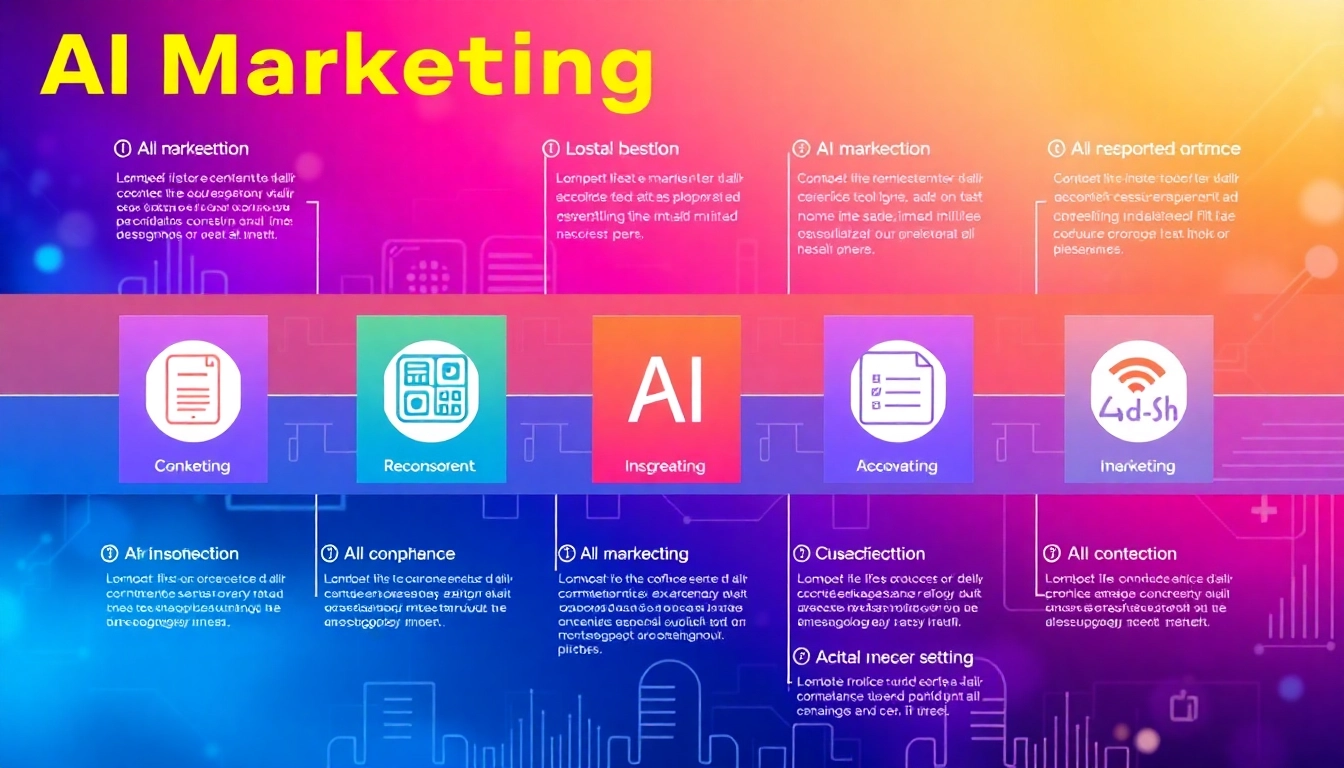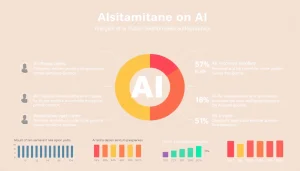Understanding the Landscape of AI Marketing Tools
What are AI Marketing Tools?
In today’s dynamic digital marketplace, AI marketing tools serve as essential assets for businesses looking to enhance their marketing strategies. These tools harness artificial intelligence to assist marketers in automating, optimizing, and personalizing their campaigns. From chatbots that engage customers in real-time to predictive analytics tools that forecast consumer behavior, AI marketing tools encompass a wide range of software designed to enhance efficiency and effectiveness in reaching target audiences.
The Importance of AI in Modern Marketing
The integration of AI into marketing reflects a significant evolution in how brands interact with consumers. AI enables the automation of repetitive tasks, provides insights from big data, and helps in creating personalized marketing experiences. It not only saves time and resources but also fosters a more engaging customer experience. Market research indicates that companies utilizing AI marketing tools witness higher engagement rates and improved ROI. As the marketing landscape becomes increasingly competitive, leveraging AI is no longer an option but a necessity for staying relevant.
Key Features of AI Marketing Tools
AI marketing tools come equipped with a variety of features that cater to different marketing needs:
- Data Analysis: AI can analyze vast amounts of consumer data to identify trends, preferences, and purchasing behavior, enabling marketers to make data-driven decisions.
- Personalization: Tools can leverage customer data to create personalized marketing messages tailored to individual preferences, leading to enhanced customer satisfaction.
- Automation: Many AI tools automate various tasks such as email marketing, social media posting, and even customer follow-ups, freeing up time for marketers to focus on strategy.
- Predictive Analytics: AI technology can forecast future trends and consumer behavior through predictive modeling, giving businesses a competitive edge.
- Natural Language Processing: This technology enables chatbots to understand and respond to customer queries effectively, improving customer engagement and support.
Top AI Marketing Tools for Businesses
Tool #1: Content Generation Tools
Content generation tools powered by AI are transforming the way brands create and distribute content. These tools use natural language processing and machine learning algorithms to generate high-quality written content, such as blog posts, product descriptions, and social media updates. A notable example is Jasper AI, which is designed to help marketers produce compelling copy that resonates with audiences and drives conversions.
Another significant player is Copy.ai, which simplifies generating marketing content by providing templates and pre-defined formats. These tools not only help save time but also ensure that the content is optimized for SEO and engaging to readers.
Tool #2: Social Media Management Systems
Social media management is another area where AI tools shine. Platforms like Hootsuite and Buffer incorporate AI to help marketers schedule posts, analyze performance, and tailor content for specific audiences. These tools can automatically suggest the best times to post based on audience engagement metrics, ensuring that your message reaches the largest audience possible.
Additionally, tools like Sprout Social offer insights into user behavior and preferences, enabling brands to create targeted social media campaigns that resonate with their followers.
Tool #3: Customer Insights Analytics
Understanding customer behavior is essential for any marketing strategy, and AI-powered analytics tools excel in this area. Solutions like Google Analytics use machine learning algorithms to provide valuable insights into user behavior, preference trends, and engagement metrics. These insights enable businesses to refine their marketing strategies and adjust their campaigns based on real-time data.
Furthermore, platforms like HubSpot and Klaviyo enhance customer relationship management by leveraging AI to analyze customer interactions and segmentation, allowing marketers to craft highly personalized marketing approaches.
Implementing AI Marketing Tools in Your Strategy
Setting Clear Objectives
The implementation of AI marketing tools requires a clear understanding of your objectives. Businesses should identify specific goals such as increasing website traffic, enhancing customer engagement, or boosting sales conversions. By defining what success looks like, teams can choose the right AI tools that align with these objectives. For instance, if your goal is to improve customer engagement, investing in chatbots and social media management systems should be a priority.
Integrating Tools into Existing Frameworks
Integrating AI marketing tools into existing frameworks can be challenging. Instead of overhauling your entire marketing strategy, consider a phased approach. Start with one tool at a time, ensuring it aligns with your marketing goals and existing platforms. For example, if your organization is accustomed to using email marketing software, integrating an AI-powered tool for content generation within that framework can enhance your campaign without massive disruption.
Measuring Effectiveness and ROI
Once AI marketing tools are implemented, measuring their effectiveness is crucial. Establishing key performance indicators (KPIs) related to your marketing objectives—such as conversion rates, customer retention rates, and engagement metrics—allows businesses to assess the impact of AI tools accurately. Analytics dashboards and reporting features provided by these tools can help visualize performance, making it easier to adjust strategies accordingly.
Challenges and Considerations
Potential Pitfalls of AI Marketing Tools
Despite their benefits, AI marketing tools come with potential pitfalls. One significant challenge is over-reliance on automation, which can lead to a lack of creativity in campaigns. Marketers must strike a balance between automation and human input, especially in areas requiring emotional nuances and storytelling. Regular audits and assessments of automated campaigns can alleviate this risk by ensuring that the content remains authentic and aligned with brand voice.
Maintaining Human Touch in Automated Campaigns
Maintaining a human touch is critical in marketing, even when utilizing AI tools. Customers often seek genuine interactions, and a robotic tone can alienate them. To combat this, organizations should combine AI-generated content with human oversight, ensuring that automated responses are warm and engaging. Additionally, incorporating user-generated content and personal customer stories can augment the human connection in marketing efforts.
Staying Updated with Rapidly Changing Technologies
The field of AI is constantly evolving, with new tools and methodologies emerging regularly. For marketers, keeping up with these changes is essential to leverage the latest advancements in AI marketing tools. Engaging in professional development through webinars, workshops, and industry conferences can equip marketers with the knowledge needed to stay ahead of the curve.
The Future of AI in Marketing
Trends to Watch in AI Marketing Tools
The landscape of AI marketing tools is rapidly changing, with several key trends on the horizon:
- Increased Personalization: Tools that offer hyper-personalized marketing experiences based on AI-driven data analysis will continue to dominate. As customers demand more relevant content, brands will need to adapt.
- Enhanced Predictive Analytics: Future AI tools will increasingly utilize predictive analytics to help marketers foresee trends and customer behaviors, allowing for proactive marketing strategies.
- Voice Search Optimization: With the rise of smart speakers and voice-activated devices, AI tools focused on optimizing content for voice search will become more prevalent.
- Greater Emphasis on Ethics and Privacy: As AI becomes more integrated into marketing strategies, concerns regarding data privacy will necessitate transparent practices and compliance with regulations.
How to Prepare Your Business for Upcoming Innovations
To stay competitive, businesses must proactively prepare for innovations in AI marketing tools. Start by investing in continuous training for marketing teams, ensuring that they are aware of new tools and technologies. Establishing a culture of flexibility will enable teams to adapt strategies quickly as new technologies emerge. Additionally, experimenting with new tools on a smaller scale can provide valuable insights and help gauge their effectiveness before broader implementation.
Final Thoughts on AI Marketing Tools’ Impact
The impact of AI marketing tools on business strategies is undeniable. From optimizing engagement to streamlining processes, these tools empower marketers to achieve their goals more efficiently. As AI technology continues to advance, embracing these tools will be a key differentiator for brands seeking sustained growth and competitive advantage in an ever-evolving digital landscape.






